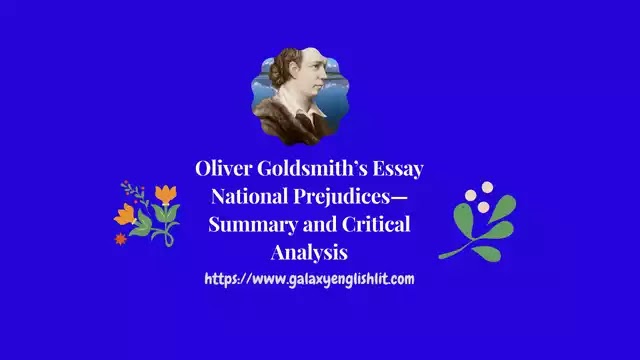Irony, the most Important Ingredients of Jane Austen's Art:
Irony is an essential ingredient of Jane Austen's craft and her irony is all pervasive. We come across it everywhere in style, story, and characters. The irony in Jane Austen may be of following kinds:
 |
| Pervasive Irony in Jane Austen’s Novel Pride and Prejudice |
(1) Irony of Character
(2) Irony of Situation
(3) Irony of Life
(4) Irony of Speech
(1) Irony of Character:
The Irony of Character means the contrast between reality and appearance of a particular character. For instance, Elizabeth Bennet in Pride and Prejudice prides over her perception. On account of her prejudice she is ignorant of her own faults and almost invites disaster of her own prospects. Similarly, in the same novel, Wickham appears graceful, polished and cultured , what precisely he is not , and thus presents remarkable contrast to Darcy who also appears what he is, actually, not . The Bingley sisters hate the Bennets for their vulgarity but are themselves vulgar in their behaviour. Thus Elizabeth, Wickham, Darcy and the Bingley sisters are the examples of the Irony of Character.
(2) Irony of Situation:
Miss Caroline Bingley teases Elizabeth Bennet for her fascination for Wickham but this, ironically, rebounds on Caroline herself . She does this to poison and prejudice Darcy against Elizabeth but unwittingly rouses loveful passion in Darcy for Elizabeth. Thus Miss Bingley wrecks her own prospects. Again the movement of the regiment from Meryton to Brighton is considered to be the end of flirtatious activities of Lydia and Catherine but, ironically, it results in a social scandal of great magnitude - Lydia's elopement with Wickham.
(3) Irony of Life:
Life itself consists of ironies of all kinds. We expect one thing and get another. We see unexpected occurrences, vice rewarded and virtues punished. The incompatibilities and incongruities in life constitute the Irony of Life and the novels of Jane Austen are replete with the irony of life.
(4) Irony of Speech:
The narrative of Pride and Prejudice too has an ironic tone which contributes much verbal irony. Jane Austen's ironic tone is established in the very first sentence of the novel: “It is a truth universally acknowledged that a single man in possession of a good fortune must be in want of a wife.” There is much verbal irony in the witty utterances of Mr. Bennet. He tells Elizabeth, “Let Wickham be your. He is a pleasant fellow and would jilt you creditably ..." In the words ‘pleasant fellow’ is hidden a dramatic irony at the expanse of Mr. Bennet, for Wickham is destined to make a considerable dent in Mr. Bennet's complacency . Another instance of such verbal irony is when Mr. Bennet, after Lydia's marriage, feels that he should have made a provision for his daughters so that “the satisfaction of prevailing on one of the most worthless young man in Great Britain, to be her husband might have rested in its proper place.”
Irony Devoid of Cynicism:
Jane Austen did not show any cynicism or bitterness in using her irony to draw satirical portraits of whims and follies. Rather her irony can be termed comic. It does not carry with it a desire on her part to reform them. It is a gesture that is part humorous, part despairing. It implies on her side an acknowledgement of what is wrong with people and society and an acceptance of this as something one has to bear with and therefore might as well smile at. It is interesting to note that ironically, in Pride and Prejudice it is the villainous characters Wickham and Lady Catherine - who are responsible for uniting Elizabeth and Darcy.
Jane Austen's Irony is Gentle and Humane:
Jane uses irony, as has already been stated and emphasised, to expose and ridicule affectation, foolishness, pride, prejudice, snobbery, shame etc. But it must be conceded to Jane Austen's credit that her irony is not bitter like that of Dean Swift but cultured and humane like that of Joseph Addison.
Her Irony, A. Soothing Instrument:
Her irony does not inflict wounds. It soothes and comforts as it is accompanied by humour . Jane Austen enjoys depicting incongruities of character but she never permits this to darken the atmosphere of gaiety— her irony is comic than tragic or gloomy .





